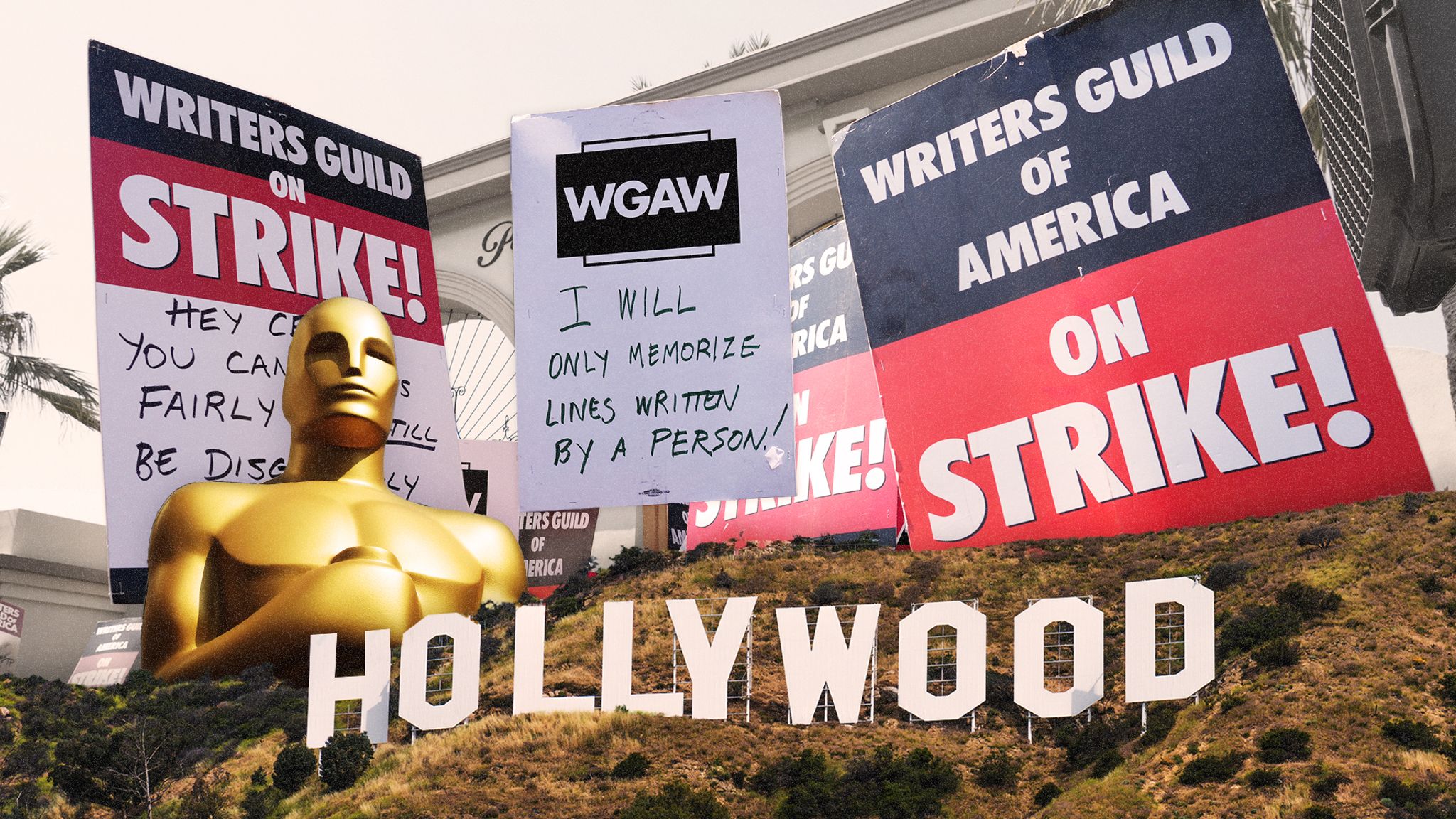This summer, Hollywood came to a standstill. For the first time in 63 years, writers and actors went on strike together as both the Writers Guild of America (WGA), representing 11,500 writers, and SAG-AFTRA, a 160,000-strong coalition of actors and media professionals, failed to settle contract negotiations with the Alliance of Motion Picture and Television Producers (AMPTP), who represent major studios such as Disney and Netflix.
On Sept. 24, 2023, the WGA reached an agreement with the AMPTP, ending a 146-day strike—the longest in its history—that cost California’s economy some $5 billion. In an “exceptional” deal, the WGA promises “meaningful gains and protections for writers in every sector of the membership.” The agreement includes pay increases, a new minimum staffing requirement in writers’ rooms, improved compensation terms for screenwriters, and vigorous protections against the use of AI in the writing process.
Change was long overdue. The strikes came at a critical juncture in the entertainment industry, which has gone through major upheavals in recent years. In film, the pandemic upended the box office, with ticket sales falling 80 percent between 2019 and 2020. In television, streaming has almost entirely replaced the traditional broadcast model. And, the art of filmmaking itself is set to be radically transformed by AI technology.
Yet, the WGA estimates that industry profits have surged sixfold to $28-$30 billion in 2017-2021. Spending on streaming content also rose dramatically from $5 billion in 2019 to $19 billion in 2023. And, as studios line their pockets, executives enjoy increasingly lavish compensation. Warner Bros. Discovery CEO David Zaslav made $498 million over the past four years, and the average pay for a Hollywood executive has increased by 53 percent since 2018.
Meanwhile, writers and actors bear the brunt of all this disruption. The average writer-producer, by comparison, makes 23 percent less than they did a decade ago, adjusted for inflation. The streaming model has also created rampant job insecurity. TV series created for streaming platforms are far shorter in length, consisting of 8 to 10 episodes per season as opposed to 22 or more under the traditional broadcast format. There are longer breaks between seasons, leaving writers and actors unemployed for longer periods of time. Where writers’ rooms in the past consisted of seven to eight writers, they have now mostly been shrunk down to “mini-rooms” that task two to three writers with outlining full-season arcs of a show—without any production commitments from the studio. Often, these stories never make it on TV, but when they do, studios typically disband the mini-room before production such that the original writers for the series never see their work into fruition. This new model also leaves no opportunity for career growth, as writers are never able to gain the production experience necessary to become a showrunner-creator. In addition, residual pay—the additional income writers and actors receive when their work continues to be shown after their initial release—is calculated very differently for streaming content. With this new format, residuals, which once made up a sizable chunk of a writer and actor’s monthly pay and provided a necessary cushion in a highly volatile industry, are now almost negligible.
All of this has made the screenwriting and acting professions virtually unlivable. In an interview with The New Yorker, Alex O’Keeffe, a screenwriter for FX’s The Bear, revealed that in the 9 weeks he spent working on the show’s mini-room, he was living in Brooklyn with no heat; when his heater blew the power out, he would take his laptop and work at the public library. Last month, when The Bear received the WGA Award for Comedy Series, O’Keeffe attended the ceremony with a negative bank balance and a bowtie he purchased on credit.
The threat posed by AI is another serious sticking point. It’s not hard to imagine the potentially nefarious applications of this technology in Hollywood: studios could, for example, cut costs by hiring writers merely to review and edit AI-generated screenplays. For actors, AI can be trained on their voices and likenesses and generate entirely new performances for voiceover or live acting capacities. During negotiations, SAG-AFTRA attempted to create guidelines around AI use, but representatives noted that studios “have not shown a desire to take our members’ basic rights seriously.” In a move eerily reminiscent of a Black Mirror episode, Chief Negotiator Duncan Crabtree-Ireland revealed that the AMPTP’s proposal for AI “proposed that our background actors should be able to be scanned, get paid for one day’s pay, and their company should own that scan, their image, their likeness and to be able to use it for the rest of eternity in any project they want with no consent and no compensation.”
All of this points to an indisputable fact: major studios have done everything in their power to make writers and actors as disposable as possible—shortening contracts, leaving minimal room for career growth, minimizing compensation, and in the foreseeable next step, replacing their labor and craft entirely with AI technology. They have, as a WGA bulletin eloquently noted, “created a gig economy inside a union workforce.”
The state of the entertainment industry in recent years has been depressing, to say the least. Beholden to shareholders, studios and executives have proven unyielding in their determination to devalue the writing and acting professions to the greatest extent—with absolutely no regard, it seems, for the real lives at stake. Back in July, when there seemed to be no end in sight to the dual strikes, an anonymous studio executive told Deadline that the game plan was to wait for the unions to “bleed out.” They continued: “The endgame is to allow things to drag on until union members start losing their apartments and losing their houses.” Another insider quoted in the article called it “a cruel but necessary evil.”
Yet, against all odds, the WGA stood its ground and secured a massive victory. It negotiated contract terms that promise to make screenwriting a more livable profession. On a broader scale, it also serves as a sobering reminder: that no matter how unassailable it may seem at times, today’s form of shareholder capitalism is cracking, splintering under pressure. Change is both necessary and possible, even in the face of powerful industry giants.
This is important because even as the studios have conceded to writers’ demands, negotiations have only just begun with SAG-AFTRA. Although both unions have had similar sticking points on residual pay and artificial intelligence, SAG-AFTRA president Fran Drescher cautioned that negotiations may still take longer this time around. The actors union has a much more varied membership, representing many types of performers—actors, dancers, stunt people—each with specific needs that need to be addressed. The actors, therefore, continue to strike.
For the past couple of decades, creativity has been undermined and eroded by capitalist motivations. Original stories seldom reach the audiences they deserve; instead, Hollywood bets on uninspired sequels and formulaic superhero movies. Studios wrench more and more control away from creatives, attempting to devalue their work to the greatest extent possible. More recently, artificial intelligence threatens to replace our gift for self-expression—a uniquely human phenomenon. The dual strikes thus represent a critical turning point in Hollywood. And while the writers’ victory merits celebration, it’s only the beginning of a long, difficult battle that will continue so long as capitalist greed—and the systems that enable it—persist.
Featured Image Source: Sky News






Comments are closed.